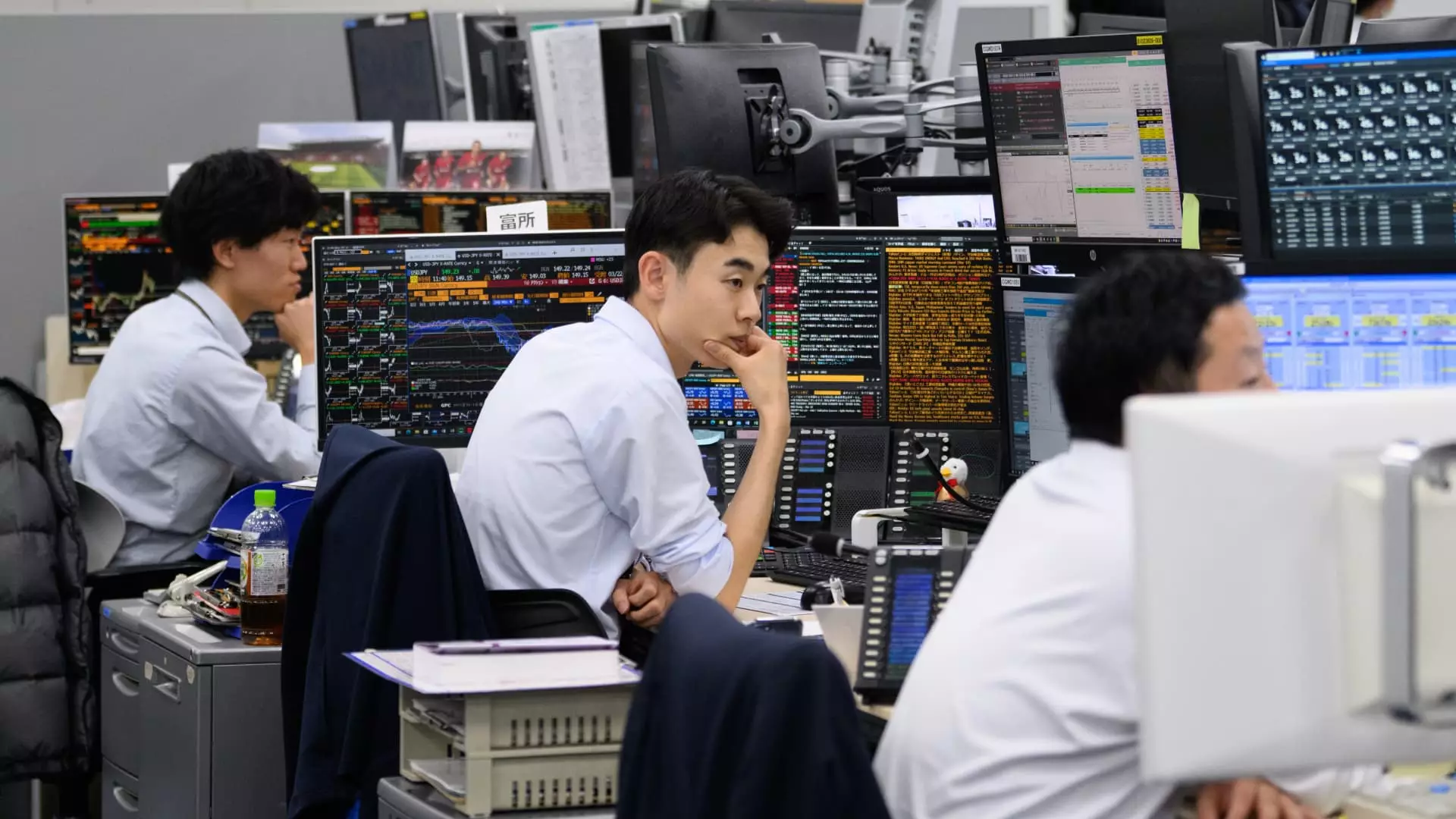The Asia-Pacific markets experienced a decline on Monday as traders assessed the implications of Iran’s massive drone and missile attacks on Israel. The attack, which involved more than 300 drones and missiles targeting military sites in Israel, was described by President Joe Biden as “unprecedented.” The United States intervened to assist Israel in intercepting the majority of the incoming projectiles. Despite the severity of the situation, oil prices remained relatively stable, with Brent crude futures trading down 0.14% at $90.32 per barrel and U.S. West Texas Intermediate futures down 0.32% at $85.39.
Traders in the region were also keeping an eye on key economic data releases scheduled for later in the week. India is set to release its wholesale inflation figures for March, while China will announce its first quarter GDP numbers. Additionally, Japan will be sharing its March trade data and inflation numbers. The release of these economic indicators could provide further insights into the health of the respective economies, influencing market sentiment and trading activity.
The impact of Iran’s attacks was reflected in the performance of Asian markets. Japan’s Nikkei 225 fell by 1.278%, and the broader Topix index was down by 0.76%. South Korea’s Kospi and Kosdaq also saw declines of 1.19% and 1.55%, respectively. Meanwhile, Australia’s S&P/ASX 200 experienced a smaller loss compared to other markets, dropping by 0.67%. Hong Kong’s Hang Seng index was down by 1.5%, while mainland China’s CSI300 index defied the trend and gained nearly 1%.
Following the events in the Asia-Pacific region, U.S. stock futures ticked higher as investors digested the news of Iran’s attacks on Israel and the increase in market volatility. Futures tied to the Dow Jones Industrial Average rose by 90 points, or 0.2%, while S&P 500 futures and Nasdaq-100 futures also saw gains of 0.2% and 0.3%, respectively. Gold futures, which had reached a record level the previous week, pulled back slightly to $2,373 per ounce. The precious metal remains up 15% for the year, highlighting investors’ demand for safe-haven assets amidst inflation concerns and geopolitical tensions.
The Asia-Pacific markets exhibited mixed reactions to Iran’s drone and missile attacks on Israel, with traders closely monitoring upcoming economic data releases and the performance of U.S. stock futures. The situation underscores the interconnectedness of global markets and the importance of geopolitical events in shaping investor sentiment and market dynamics.


Leave a Reply